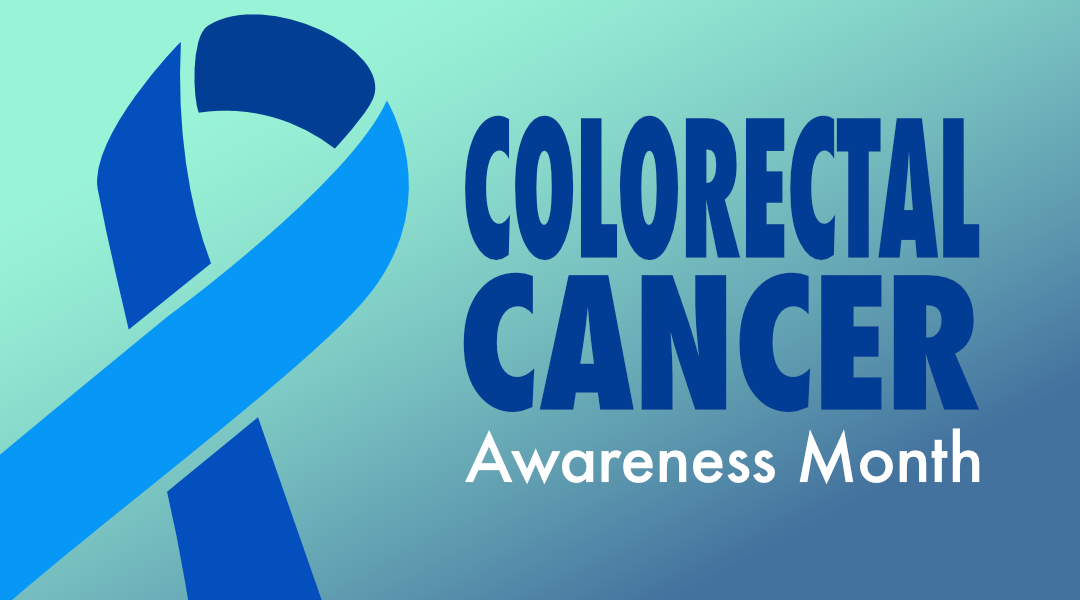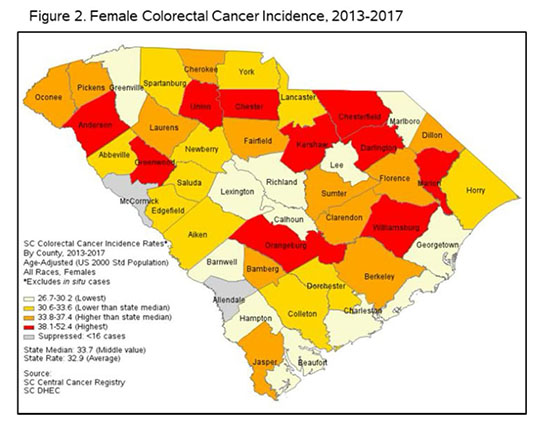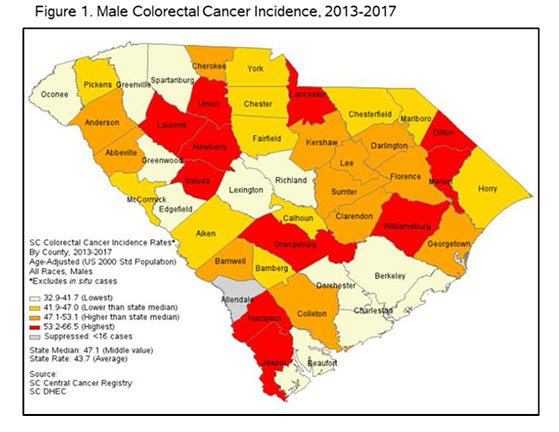Early onset cases of colorectal cancer are becoming more common, and doctors have dropped the screening age from 50 to 45. (Photo courtesy of Alexandra Tudor/Carolina News and Reporter)
Early-onset cases of colorectal cancer are increasing nationwide, according to some experts.
“Patients need to know that this isn’t (the) disease of their grandparents anymore, ” said Maggie Westfal, an MUSC Hollings Cancer Center colon and rectal surgeon. “We need to be aware of it so that we can prevent it.”
More than 2,000 people are diagnosed annually with colorectal cancer in South Carolina. About 800 die from the disease statewide, according to the South Carolina Cancer Alliance.
Colorectal cancer accounts for 10% of all cancer cases globally. It is the third-most-frequent type and the second leading cause of cancer-related fatalities.
Westfal said around 10-15% of cases are genetic. An unhealthy lifestyle and other environmental factors may increase the risk of developing colorectal cancer.
Old age is no longer the leading predictive factor, according to the Colon Cancer Coalition. The recommended screening age dropped from 50 to 45 in 2021.
Westfal said that trend may continue.
“I think it was a great step to take it from 50 to 45,” Westfal said. “I would not be surprised if, at some point in the next 10 to 15 years, we’re starting to screen people at 40.”
Colon cancer may start with mild symptoms that are easy to overlook.
The coalition says patients should monitor themselves and speak to a physician if concerns arise. If necessary, seek a second opinion. It is more easily treatable when caught early.
Although anyone may be at risk of developing colon cancer, Black Americans appear to be disproportionately affected by the disease.
Black Americans also face more obstacles while undergoing cancer treatment and prognosis. This can be attributed to systemic racial inequity in healthcare, according to the American Cancer Society. Black patients’ concerns have been historically overlooked.
African Americans’ cancer disparities highlight the importance of genetic testing, according to the National Library of Medicine website.
Talking to family members and medical professionals about genetic histories are preventative measures.
“I’ve had family members that have been affected by colon cancer,” said Lauren Burke, another event manager with the Colon Cancer Coalition. “I can see the toll it takes on not only the person who’s diagnosed with it but the family as a whole.”
Colon cancer may be prevented through early routine screenings and good dietary habits.
Stefanie Rein, the Columbia event director for the Colon Cancer Coalition, is a colon cancer survivor herself. She was diagnosed with an early-onset case in 2011 at age 40.
Rein says that people shouldn’t be ashamed of talking to their doctor.
“I want them to know that there is a community out here of colon cancer survivors and fighters, and that we’re a group that wants to stand with them,” Rein said.
As National Colorectal Cancer Awareness Month, March is especially significant to her.
“It’s so important to just get the knowledge out to people about what colon cancer is,” Rein said. “… it can affect anybody, it doesn’t matter.”
Rein contacted the coalition after seeing Charlotte’s 2022 Get Your Rear in Gear event online. She hopes to bring that awareness to Columbia.
The coalition will host South Carolina’s first Get Your Rear in Gear event in Columbia on April 20.
Organizers aim to raise money through the 5-kilometer walk-and-run event. They hope to bring together those impacted by the disease and allies who wish to lend their support.
Colon cancer patients in the Midlands will benefit from the money raised.
Early-bird registration ended March 20. General registration will be open in person and online until the day of the race.
The Colon Cancer Coalition held a 2023 Get Your Rear in Gear event in Raleigh, North Carolina. (Photo courtesy of the Colon Cancer Coalition/Carolina News and Reporter).
“It’s okay to seek help if you think something is abnormal, because it might be,” Westfal said. (Photo courtesy of MUSC Hollings Cancer Center/Carolina News and Reporter).
Colorectal cancer is the fourth-most-prevalent cancer diagnosed nationally. It is also the second-most typical reason for cancer-related fatalities, according to S.C. Department of Health and Environmental Control. (Map courtesy of DHEC/Carolina News and Reporter).
Men experience greater rates of incidence, 33%, and mortality, 47%, than women, according to S.C. DHEC. (Map courtesy of DHEC/Carolina News and Reporter)






